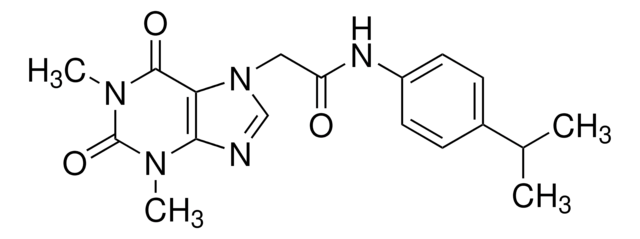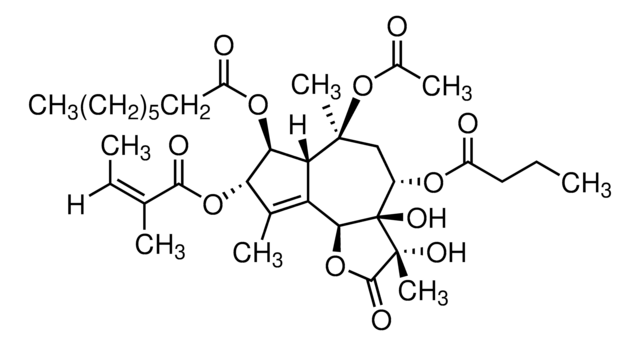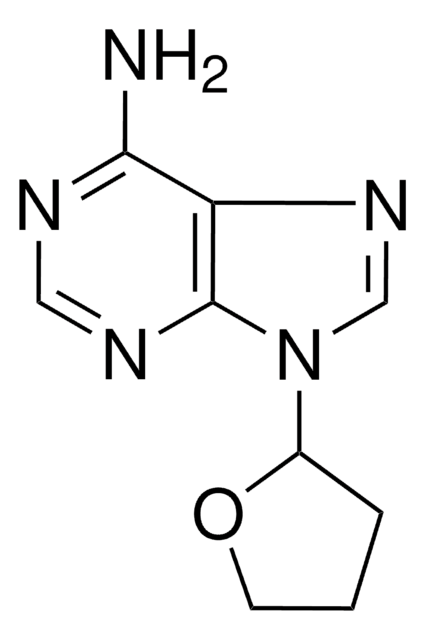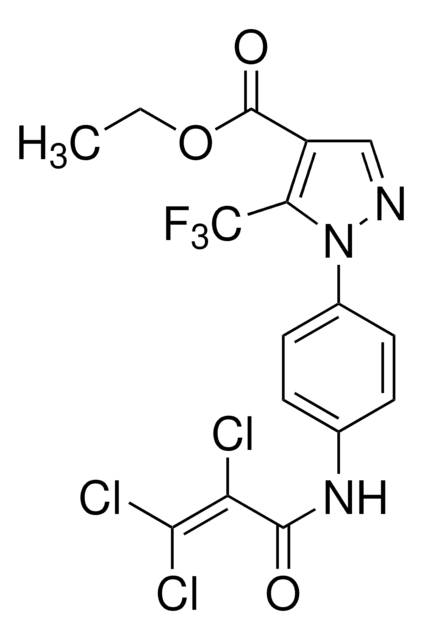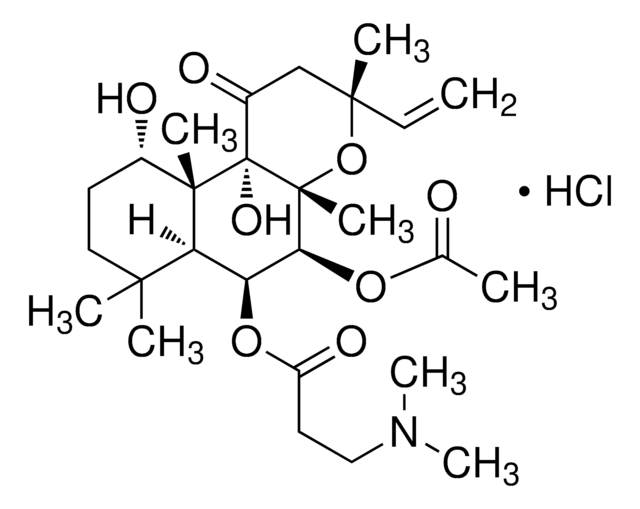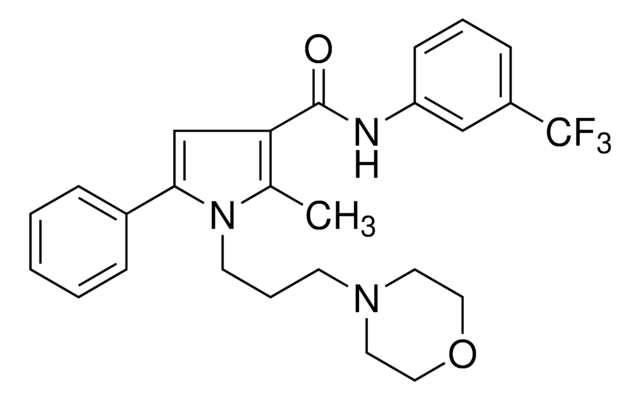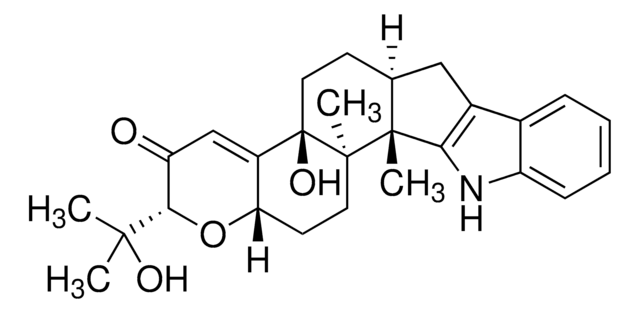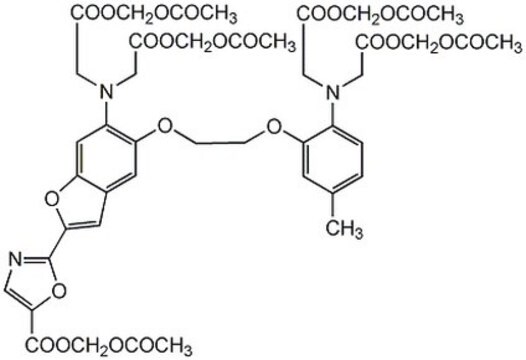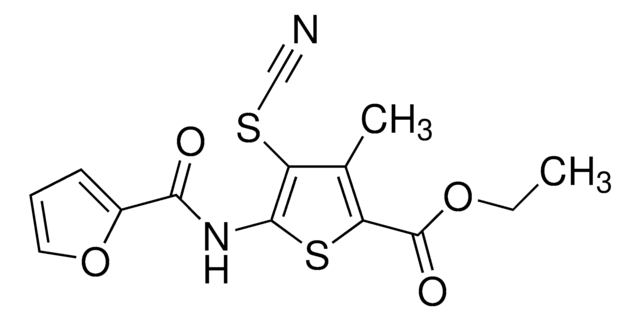K3394
KH7
≥98% (HPLC)
Synonym(s):
(E)-2-(1H-Benzo[d]imidazol-2-ylthio)-N′-(5-bromo-2-hydroxybenzylidene)propanehydrazide
About This Item
Recommended Products
Quality Level
Assay
≥98% (HPLC)
form
powder
solubility
DMSO: >20 mg/mL
storage temp.
2-8°C
SMILES string
CC(Sc1nc2ccccc2[nH]1)C(=O)N\N=C\c3cc(Br)ccc3O
InChI
1S/C17H15BrN4O2S/c1-10(25-17-20-13-4-2-3-5-14(13)21-17)16(24)22-19-9-11-8-12(18)6-7-15(11)23/h2-10,23H,1H3,(H,20,21)(H,22,24)/b19-9+
InChI key
WILMXUAKQKGGCC-DJKKODMXSA-N
Application
- as a soluble adenyl cyclase (sAC) antagonist to study its effect on the signaling pathway mediated by the action of transient receptor type 1 (TRPV1) in sperm cells.
- as a selective sAC antagonist to study its effect on the signaling pathway of proton gated channels (HV1) induced action in sperm cells.
- as a sAC inhibitor to study its effects on cAMP increase in monophosphorylated myosin light chain (pMLC).
Biochem/physiol Actions
Features and Benefits
Suitability
Signal Word
Danger
Hazard Statements
Precautionary Statements
Hazard Classifications
Acute Tox. 3 Oral
Storage Class Code
6.1C - Combustible acute toxic Cat.3 / toxic compounds or compounds which causing chronic effects
WGK
WGK 3
Flash Point(F)
Not applicable
Flash Point(C)
Not applicable
Certificates of Analysis (COA)
Search for Certificates of Analysis (COA) by entering the products Lot/Batch Number. Lot and Batch Numbers can be found on a product’s label following the words ‘Lot’ or ‘Batch’.
Already Own This Product?
Find documentation for the products that you have recently purchased in the Document Library.
Customers Also Viewed
Related Content
Cyclic nucleotides, including cyclic AMP (cAMP), cyclic GMP (cGMP) and cyclic ADP-ribose, have been extensively studied as second messengers of intracellular events initiated by activation of GPCRs. cAMP modifies cell function in all eukaryotic cells, principally through the activation of cAMP-dependent protein kinase (PKA), but also through cAMP-gated ion channels and guanine nucleotide exchange factors directly activated by cAMP.
Our team of scientists has experience in all areas of research including Life Science, Material Science, Chemical Synthesis, Chromatography, Analytical and many others.
Contact Technical Service